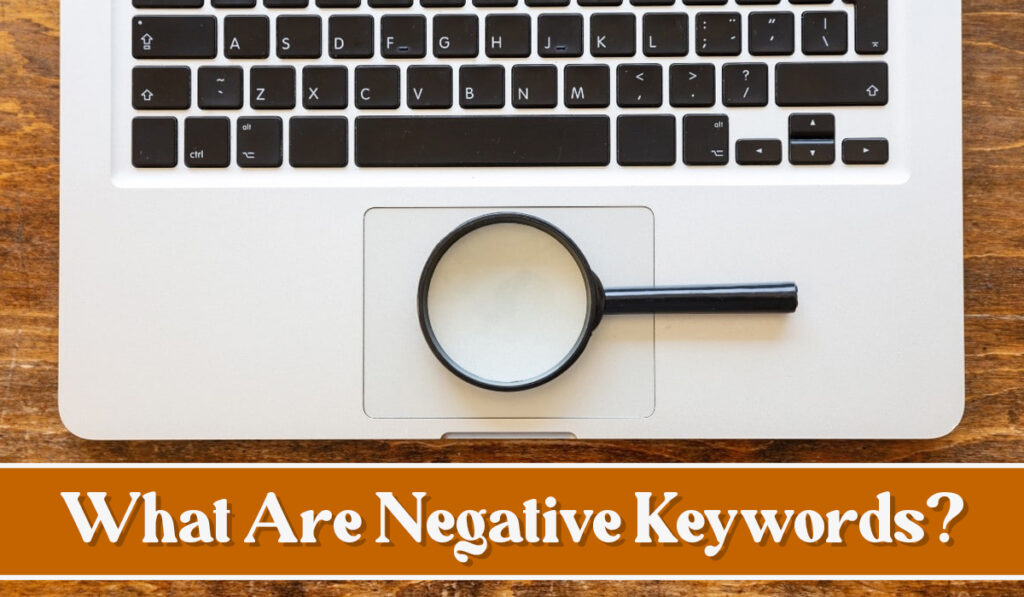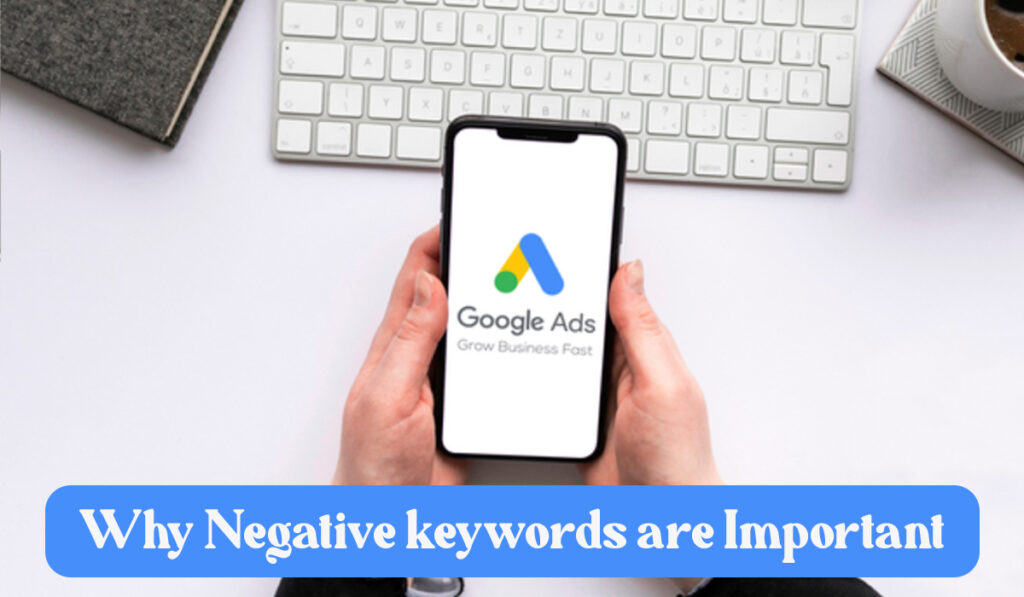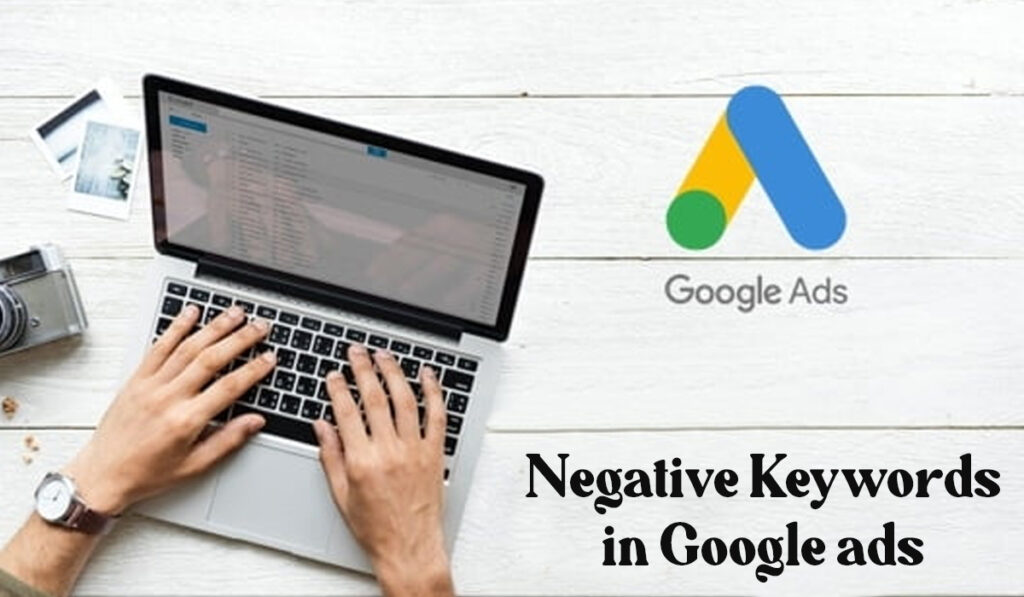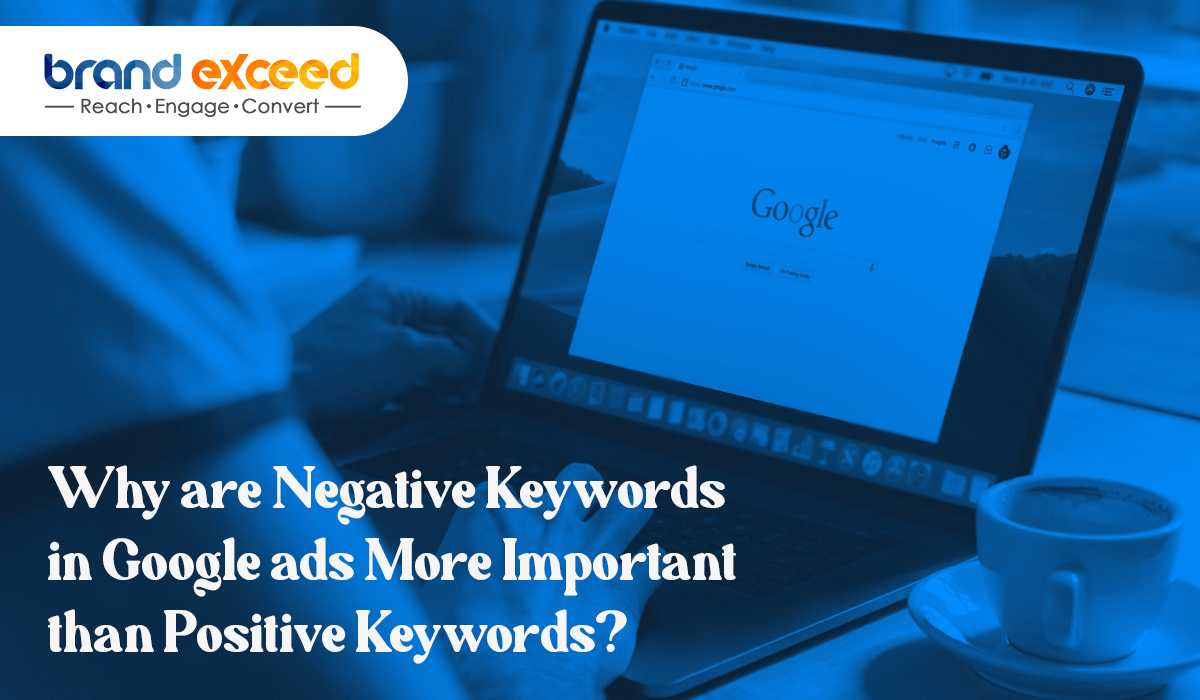One of the most well-known platforms for companies to advertise their goods or services online is Google Ads in digital advertising. A campaign cannot be guaranteed success by simply starting it and praying for the best. One of the most effective strategies marketers can use to optimize their efforts is using negative keywords. By excluding irrelevant search terms from their campaigns, marketers can ensure that only users more likely to be interested in their goods or services will see their ads.
Advertisers should use negative keywords in their Google AdWords campaigns for various reasons, including lowering ad spend, boosting click-through rate (CTR), focusing on the correct audience, boosting conversion rate, lowering bounce rate, boosting relevancy, enhancing ad targeting, and finally enhancing user experience. This essay will cover these factors in greater detail, showing how essential negative keywords are to any productive Google AdWords campaign.
We have also listed some Best Reasons Why Your Website Needs SEO?
What Are Negative Keywords?

Negative keywords are the search queries that advertisers leave out of their Google AdWords campaigns. These terms or expressions may or may not be pertinent to a particular campaign but are associated with their goods or services. By removing these useless search phrases, advertisers can guarantee that their adverts are only shown to users that are most likely to be interested in their goods or services.
For instance, if a clothing company is conducting a Google Adwords campaign to advertise its summer line, it might wish to omit negative keywords like “winter,” “jacket,” and “snow” to stop its ads from showing up while people are looking for winter clothes. Advertisers may enhance click-through rates, make their advertising more relevant, and ultimately boost the effectiveness of their campaigns by employing negative keywords.
To increase traffic to your website, you, as an advertiser, may be spending a sizable sum of money on Google AdWords. Nevertheless, not all traffic is created equal, and you can discover that some of your ad expenditure is being lost on pointless clicks.
Why Negative keywords are Important

Negative keywords are too important for every business, although Advertisers must use negative keywords to weed out useless search queries and stop paying for hits that won’t result in sales. It would help if you were using them for the following reasons:
1. Save money:
By removing pointless search phrases, you may lessen the number of pointless clicks on your advertising, ultimately saving you money. Removing pointless search queries, negative keywords enable advertisers to save money on their Google AdWords campaigns.
Advertisers can prevent expensive ad clicks that don’t result in conversions by omitting these terms, saving them money.
As a result, there may be a large drop in ad spending, which might be put towards more effective keyword placement or an improvement in ROI. Advertisers may ensure that their ad spend is utilized properly and efficiently, ultimately resulting in a better return on investment, by using negative keywords in their campaigns.
2. Enhance click-through rate (CTR):
By removing pointless clicks, you can raise your CTR and, consequently, your quality score, as well as cut down on your cost-per-click. Also, using negative keywords can aid advertisers in increasing their Google AdWords campaigns’ click-through rates (CTR). Those most likely interested in the advertised goods or services will only see the adverts after removing irrelevant search terms from their search queries.
As a result, there is a higher chance that people will click on the advertisement because they are more likely to think it is relevant and valuable. A higher click-through rate (CTR) can result in a higher quality score, lowering the cost per click (CPC) and elevating the ad’s position on the search results page. Advertisers can boost the possibility of conversions by increasing the CTR, which will encourage more clicks on their advertising.
- The correct audience can be targeted using negative keywords, which can improve your chances of turning clicks into paying consumers.
- For advertisers using Google AdWords, negative keywords are a powerful tool for accurately identifying their target market.
- More quality traffic is generated due to the advertising only being displayed to visitors who are most likely to be interested in the promoted good or service by removing irrelevant search phrases.
- As more conversion-probable users are being targeted, this may boost the possibility of conversions.
- Advertisers can further their ad targeting by utilizing negative keywords to target a more precise demographic.
As a result, the ad spend is employed effectively and efficiently to reach the desired audience and raise conversion rates. The appropriate audience targeting can ultimately result in a higher return on investment and a more effective Google AdWords campaign.
3. Increase conversion rate:
By selecting the appropriate audience to target and removing pointless clicks, you may increase your conversion rate, increasing your business’s leads and revenues. Also, using negative keywords in Google AdWords campaigns might assist advertisers in increasing their conversion rates.
More quality traffic is generated due to the advertising only being shown to users who are more likely to be interested in the good or service offered by excluding irrelevant search phrases. As more conversion-probable users are being targeted, this may boost the possibility of conversions.
By employing negative keywords, marketers may ensure that only individuals are more likely to be interested in the good or service offered to see their advertising, increasing the likelihood that those users will convert. Advertisers can boost their chances of producing more leads, sales, and money for their company by improving the conversion rate.
4. Decrease bounce rate:
Negative keywords can assist in lowering your bounce rate if visitors click on your ads and then abandon your website right away because it doesn’t match their search criteria. Also, including negative keywords in your Google AdWords campaigns might assist advertisers lower bounce rates. Users who click on an ad and immediately abandon the landing page because it isn’t what they were looking for have a high bounce rate.
More quality traffic is generated due to the advertising only being shown to users who are more likely to be interested in the good or service offered by excluding irrelevant search phrases. A lower bounce rate can be achieved by reducing the number of visitors who quickly depart the landing page. Advertisers may improve user engagement and conversion rates by lowering their bounce rate, which increases the possibility of consumers staying on their websites and converting.
5. Improve relevance:
By employing negative keywords, you may make your ads more relevant, which will help you get a better ad position and show up more frequently in search results. The relevancy of advertising in Google AdWords campaigns can be improved using negative keywords. Advertisers can ensure that only users who are more likely to be interested in the offered goods or services will see their adverts by removing irrelevant search phrases. Stronger relevancy between the user’s search query and the displayed ad may result from this, increasing the likelihood that a click will be made and, ultimately, a conversion.
A reduced cost-per-click and a higher ad position might result from advertisers making sure that the ads are pertinent to the user’s search query, improving their quality score. More relevance can also result in better user engagement and a more satisfying user experience, boosting brand loyalty and customer retention.
6. Better ad targeting:
By removing irrelevant search phrases unrelated to your company, negative keywords enable you to target your ads. Negative keywords can enhance Google AdWords campaign targeting by focusing on a more targeted demographic. By removing irrelevant search terms, advertisers can guarantee that their adverts are only displayed to viewers who are more likely to be interested in the good or service being promoted.
This can lead to more accurate targeting of the appropriate audience, resulting in higher-quality traffic and better conversion prospects. Advertisers can make better use of their advertising budget by avoiding customers who are unlikely to convert by employing negative keywords. A more effective Google AdWords campaign and higher ROI for the advertiser result in better ad targeting.
7. Control ad spend:
Negative keywords assist you in keeping your advertising budget under control by avoiding search terms unrelated to your industry and likely to lead to unnecessary hits. Negative keywords might aid businesses in managing their Google Adwords campaign budget. By removing irrelevant search phrases, advertisers can reduce the number of ineffective clicks on their advertising, which can cost money but yield no conversions.
This may result in a considerable decrease in ad spending, which may be spent on more effective keywords or utilized to boost overall ROI. Also, advertisers can minimize pointless clicks that can quickly mount up in cost by ensuring that the ads are only displayed to individuals more likely to be interested in the goods or services being marketed. Advertisers can enhance their return on investment and control ad spend by utilizing negative keywords to ensure their advertising dollars are used effectively and efficiently.
8. Enhance ad performance:
By concentrating on the keywords that are most pertinent to your company, you can enhance the performance of your ads by employing negative keywords. With Google AdWords campaigns, negative keywords might enhance the overall performance of the advertising. More quality traffic is generated due to the advertising only being shown to users who are more likely to be interested in the good or service offered by excluding irrelevant search phrases. This may improve CTR, conversion rate, and quality score metrics.
Furthermore, by ensuring that the ads are pertinent to the user’s search query, advertisers can raise user engagement and, eventually, the possibility of conversions. Advertisers can further enhance the performance of their ads by focusing their targeting to only include negative keywords that will specifically target the people they wish to reach. A more effective Google Adwords campaign can ultimately result from improved ad performance.
9. Enhance user experience:
The user experience can be improved, and your brand’s reputation can be raised by showing your adverts to the appropriate demographic and removing pointless clicks. By limiting the number of advertisements that users see to those that are pertinent to their search, negative keywords can improve the user experience in Google AdWords campaigns.
- A better user experience is achieved by removing irrelevant search terms so that the adverts are only shown to those more likely to be interested in the promoted good or service.
- This may result in stronger user engagement, more brand loyalty, and, eventually, higher conversion rates. Also, by lowering the bounce rate, consumers are more likely to remain on the landing page, improving user experience and raising conversion prospects.
- Advertisers may improve their brand’s overall perception, which will promote consumer loyalty and repeat business, by improving the user experience.
- The result will be a better user experience and a more effective Google Adwords campaign because advertisers may employ negative keywords to ensure that their advertisements are only shown to users interested in their goods or services.
- Improve your ad effectiveness and target the proper audience using negative keywords to stay one step ahead of the competition.
As a result, negative keywords are a critical tool for advertisers to enhance the effectiveness of their ads, conserve funds, and target the appropriate market. Negative keywords will help you become more relevant to users, boost conversion rates, and improve user experience.
To see the impact negative keywords have on your business, implement them into your Google AdWords campaigns immediately.
How to Add Negative Keywords?

It would help if you took the following actions to add negative keywords to your Google AdWords campaign:
- Go into your Google AdWords account and choose the campaign you want to add negative keywords.
- “Negative keywords” can be accessed by selecting the “Keywords” option.
- A new negative keyword can be added by clicking the blue “+” button.
- In the text box, type the opposing word, then choose the appropriate match type (broad, phrase, or exact).
- Press “Save.”
The “Keyword planner” tool or importing a list of negative keywords from a spreadsheet are other methods for adding negative keywords in bulk. Regularly reviewing your search term report can help you find fresh irrelevant search terms that you should add as negative keywords to your campaign. You can ensure that your advertisements are always shown to the appropriate audience and enhance the overall effectiveness of your Google AdWords campaign by consistently improving your negative keyword list.
Conclusion

For any Google AdWords campaign to succeed, using negative keywords is an essential strategy. Advertisers can lower ad spend, boost relevancy, increase ad targeting, raise click-through rate (CTR), target the proper audience, decrease bounce rate, improve conversion rate, eliminate irrelevant search words, improve user experience, and eventually improve the overall effectiveness of their ads by removing irrelevant search terms.
By using negative keywords, advertisers may ensure that only users interested in their goods or services see their adverts, resulting in a more effective use of their advertising budget and a greater return on investment (ROI).
Additionally, advertisers can strengthen their brand image and boost consumer loyalty and repeat business by improving the user experience and boosting the relevance of their advertisements. Negative keyword utilization should be prioritized by any advertiser who wants to maximize ROI and optimize Google AdWords campaigns.
FAQ’s
Question 1: What exactly are Google Adwords negative keywords?
Search terms blocked from Google AdWords campaigns are known as negative keywords. By filtering out irrelevant search terms, advertisers may ensure that their adverts are only shown to users who are more likely to be interested in their goods or services.
Question 2: Why should I utilize negative keywords in my Google AdWords campaign?
There are numerous benefits to using negative keywords in your Google AdWords campaigns. Advertisers can lower ad spend, boost relevancy, increase ad targeting, raise click-through rate (CTR), target the proper audience, decrease bounce rate, improve conversion rate, eliminate irrelevant search words, improve user experience, and eventually improve the overall effectiveness of their ads by removing irrelevant search terms.
Question 3: What are the best negative keywords to use for my campaign?
Regularly evaluating your search term report is the greatest way to select the appropriate negative keywords for your campaign. You can apply the search phrases in this report to find irrelevant search terms you wish to omit from your campaign by looking at the ones that led to your advertising.
Question 4: How many negative keywords should I include in my campaign?
Depending on your campaign’s scope and specific aims, you should use a certain number of negative keywords. Normally, it is advised to begin with a modest list of negative keywords and progressively add to it as you analyze your search term report and find additional irrelevant search phrases.
Question 5: Will negative keywords affect the quality score of my advertisement?
Negative keywords do affect your ad’s quality score. You may increase the relevancy of your advertising and raise your quality score by removing irrelevant search phrases.
Question 6: Can negative keywords help in cost-cutting in my Google Adwords campaign?
Using negative keywords can reduce your Google AdWords campaign’s cost. You can save money on advertising by removing pointless search phrases and guaranteeing that only users more likely to be interested in your goods or services will see your adverts.
Question 7: When should I check my list of negative keywords?
Regularly checking your negative keyword list is advised; preferably, do it once a week or monthly. Making sure that your ads are always shown to the appropriate audience will help you find new irrelevant search phrases that you want to eliminate from your campaign.

